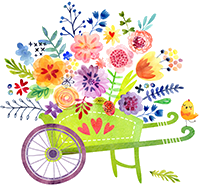 Nothing is more stressful than knowing your relationship is in trouble. When this happens, some couples go to couples therapy, but often one half of the couple refuses to go. When this happens, the other person can still go to therapy and improve the relationship.
Nothing is more stressful than knowing your relationship is in trouble. When this happens, some couples go to couples therapy, but often one half of the couple refuses to go. When this happens, the other person can still go to therapy and improve the relationship.
Individual therapy can help you to have a better relationship by providing a variety of tools. For one, it can give you the courage to confront your issues and actually do something about them. If one half of a couple becomes stronger and more balanced, the relationship will change, too.
How Therapy Helps Relationships
For one, therapy can make you happier. This makes you more attractive to you partner and draws them back into the relationship.
By working through difficult feelings a therapist you can develop strategies to bring more joy into your life. By opening up to deeper emotions, you also make for lighter ones. This can help you remember how to enjoy life and find connection again with your partner. This can also lead to better communication in your relationship.
Couples often talk all the time, but don’t really resolve their problems. When this happens, it can lead to frustration and poor communication. One of the most important skills individual therapy teaches is how to communicate honestly, openly and kindly. While your partner may not have these skills, your new skill level can actually elevate the conversation.
Psychoeducation and Relationships
Another great thing that happens in individual therapy is that the therapist recommends books and other work you can do on your own. This is known as psychoeducation, the process of providing educational and informational sources to individuals, couples and families receiving mental health services like counseling. This can be particularly helpful for people who want to be as involved as possible in the therapy process.
There’s a number of good relationship books that can help couples do things such as learn to fight fairly. Arguments are a part of any vibrant relationship. The key is to express your feelings in a kind way and listen to your partner.
Therapy also helps you to know yourself better and understand your partner in new ways. Individual therapy helps you realize your own feelings and motivations. Even when someone’s partner isn’t participating, a therapist imagine their partner’s perspective.
Individual therapy helps people to feel less desperate. If only one person is going to therapy to help a relationship it probably means that they are more concerned about the relationship than their partner. If you have been pushing your partner to go to couples counseling they may resent it. While this may sound bad, individual therapy can help you talk with your partner about your resentments.
As you learn new techniques for improving relationships and communication, you can share them with your partner. When your partner experiences you feeling better, it can be encouraging and comforting. Your partner may ultimately decide that therapy is less threatening and be willing to go to couples counseling.

References
Gottman, J., & Silver, N. (1999). The seven principles for making marriage work. New York: Crown.
Gottman, J. M., & Silver, N. (2012). What makes love last: How to build trust and avoid betrayal. New York: Simon and Schuster.
Rowe LS, Doss BD, Hsueh AC, Libet J, Mitchell AE. Coexisting difficulties and couple therapy outcomes: psychopathology and intimate partner violence. J Fam Psychol. 2011 Jun;25(3):455–458.
Navidian A, Bahari F. The impact of mixed, hope and forgiveness-focused marital counselling on interpersonal cognitive distortions of couples filing for divorce. J Psychiatr Ment Health Nurs. 2014 Sep;21(7):658–666.
